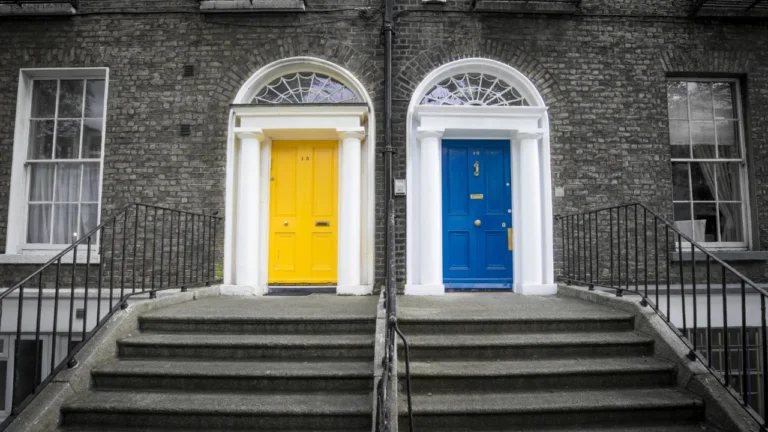“And hope does not disappoint us, because God has poured out His love into our hearts through the Holy Spirit, whom He has given us. And hope does not put us to shame, because God’s love has been poured out into our hearts through the Holy Spirit, who has been given to us.”
Romans 5:5
Every year millions of followers of Christ commemorate the season by lighting candles around Advent wreaths. Historically the first candle lit represents hope. This is a fitting way to start off the season of Advent as we prepare for Christmas and what it calls us to remember. After all, the people of God spent hundreds of years hoping and waiting for their Messiah.
Their Story
Creation and the Patriarchs
Just try and imagine yourself in the sandals of a first-century Israelite. For as far back as your cultural memory goes, you have been living with the promise of a coming Messiah, a just ruler, a savior. God promised to Adam and Eve one who would come from the woman’s seed and crush the serpent’s head. Abraham was told that through his family, all families of the earth would be blessed. Jacob prophesied over Judah that a ruler who would command the “obedience of the nations” would come from his line (Gen 49:10).
Slavery and Wandering
Imagine their disappointment to find out that after all these great promises, they would end up as slaves in Egypt for four hundred years. Did God forget about his people? Would he fail to fulfill his promises? Surely, some of the Israelites must have been wondering these things as they suffered and toiled under the fist of Pharaoh. What would you have thought? Would you have held onto hope in God’s promises?
After some time, God sent Moses to confront Pharaoh and the gods of Egypt and lead all the people out of Egypt in a very public and dramatic confrontation. Would the promised Messiah follow soon after? But the people of God grumble against him and choose to disobey losing the right to enter the promised land. All they had left to do was to hope that their children would see and experience the promises of God.
Judges and Kings
As the generation that came out of Egypt died off, their children entered the promised land and watched as their enemies were driven out before them. They set up their lives and surely people now would be thinking, “God has given us the promised land, where is the promised one who would crush the head of the snake?” But the history of this time period is not a pretty one. It is a time filled with violence, idolatry, and every kind of sin where “there was no king in Israel, and everyone did what was right in their own eyes” (Judges 21:25).
The people of Israel saw so much instability in the time of the judges, they must have been deeply hoping for someone or something who could give them security in uncertain times. So, they did the worst thing yet – they rejected God as king and asked for a human king like all the nations around them. God gave them what they want. The first king of Israel was a failure who did not follow God whit his whole heart and eventually perished in battle with Israel’s enemies as a result. Then king David rose to the throne and we see a picture of a good king who defeated Israel’s enemies and followed Israel’s God whole-heartedly. Could he be the promised one? Although he received the promise that the coming Messiah would come from his line, it was not him. The end of his reign is marked by adultery, murder, and a series of political assassinations to prepare the kingdom for his son Solomon to take over. Solomon saw a period of unrivaled success in Israel and the kingdom continued to expand its land, wealth, power, and influence. Wealthy rulers of distant countries were coming to hear the wisdom of king Solomon. Was this the blessing for all nations that God promised to Abraham? Yet again, the Israelites were met with disappointment as he married many women and joined in the worship of their gods. His reign ended in adultery, idolatry, and left the country ripe for civil war in the time of his sons.
What follows is a series of kings in the divided countries of Judah and Israel, most of them bad, some good, but none were the promised Messiah in whom the Gentiles would hope, let alone the people of Israel. They continued to wait and hope for their coming king – their Messiah.
Exile and Return
Things got so bad that eventually the people of Israel were taken into exile by the Assyrians in 722 BC and the people of Judah were taken into exile by the Babylonians in 598 BC. God’s people once again had no land, no king, and no messiah. After a few generations of Jews were born and raised in Babylon, the Persian empire rose to power and allowed the Jewish people to return to their homeland. The city of Jerusalem and the temple were rebuilt and rededicated to their God, but they were still under a foreign king and had no messiah. The people were still waiting, still hoping, for their promised messiah.
Greeks and Rome
But like all other empires so far, Persia’s days of unquestioned power were limited. Alexander the Great’s armies conquered Jerusalem in 332 BC and after his death it was caught between his successors who were constantly at war with each other.
The Jews had a glimmer of hope during the Maccabean Revolt when Judas Maccabeus and his followers captured Jerusalem in 164 BC and rededicated the temple and altar. Could this finally be the Messiah – someone to lead the people of God back into freedom and prosperity? Once again, no. Judas himself died in battle, his brothers were all killed later in the ongoing conflict leaving control of Jerusalem to one of Judas Maccabeus’s nephews in 141 BC. The next hundred years were a time of compromise and power struggles with various political and religious parties battling each other for power and influence.
Eventually, it all came to an end though as the Roman General Pompei marched into Jerusalem and claimed it under the imperial dominion of Rome. The Jews were once again under a foreign tyrant, with no king and no messiah. All they could do is wait and hope.
God and Messiah
This is the historical context of that first Christmas. The Jewish people had literally been waiting and hoping for their messiah for as far back as their collective cultural memory went. They had seen many rise to power and give them a glimmer of hope, only to see them fall or cut down after a time. God’s people must have been wondering “where is God? And where is his promised messiah?” But of course, this is the very Christmas message – the Messiah they had been hoping for and the God they had been hoping in were both wrapped in swaddling clothes and lying in that manger.
The Hope of Advent
So, this year, as you light that first candle for Advent, remember that God makes good on his promises. The promises we hope for in Christ, we shall receive – all things shall be made new. Just like the Jews had been waiting for many generations for their long-promised messiah, so we now are waiting for his return and the renewal of all things. Our God will make good on his promises, death will be no more, all of creation will be redeemed, and we will live eternally with God. As we reflect on our hope in Christ, let us remember that Christ came once, and, as surely as he lives, he will come again.





